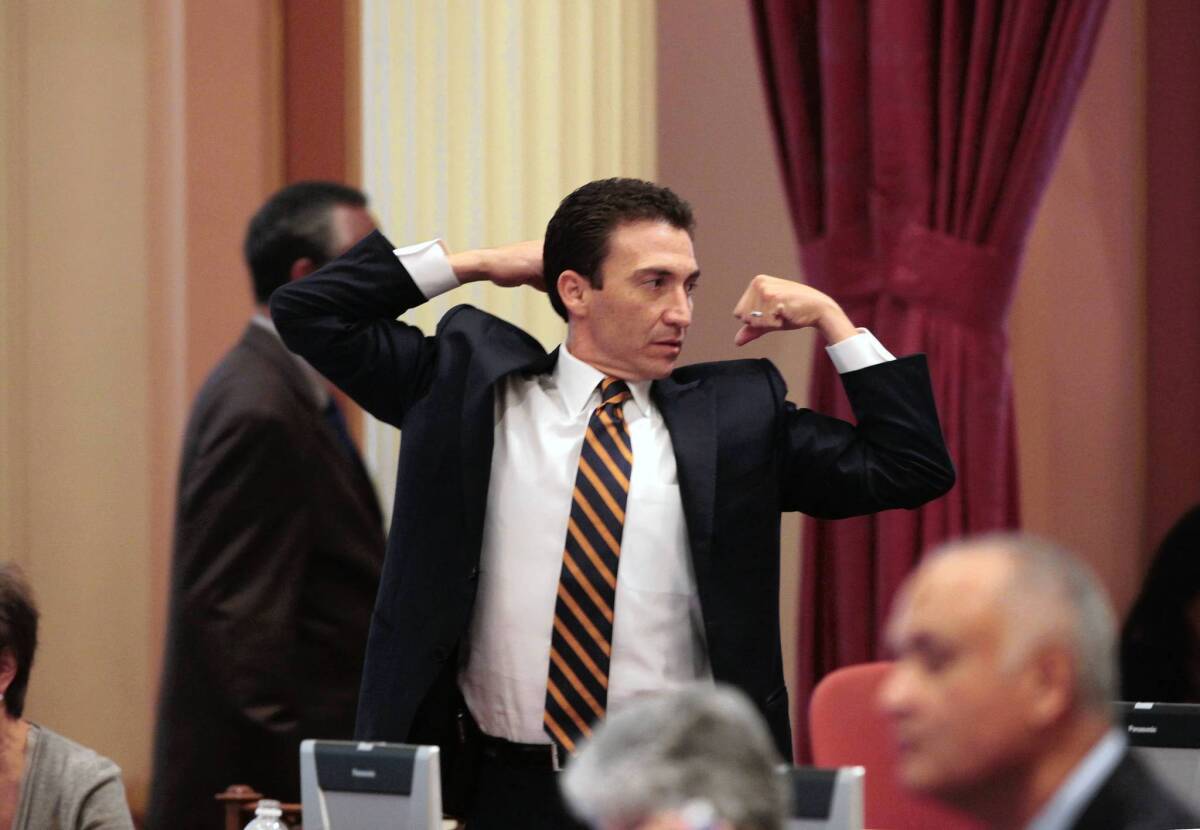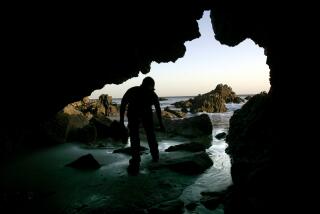California Legislature OKs two-year moratorium on park closures

SACRAMENTO — In the continuing fallout from the state parks funding scandal, the California Legislature on Thursday approved a two-year moratorium on park closures and proposed allocating $30 million to keep them operating.
Facing a midnight Friday deadline to adjourn their two-year session, lawmakers also acted to improve working conditions for nannies and other domestic workers, give driver’s licenses to some illegal immigrants, allow seriously ill inmates out of county jails early and ban sexual-orientation “conversion” therapy aimed at making gay teens straight.
The parks bill goes to Gov. Jerry Brown for final action, a month after parks officials admitted that agency employees had stashed away $54 million even as the administration was cutting services and threatening to close dozens of parks.
The department’s director resigned. Local groups that had raised money to keep their parks open clamored for refunds. A third of the $30 million would be matching funds for those donations.
Assemblyman Bob Blumenfield (D-Woodland Hills) said he offered the bill as “a concrete step to make things right” after “rogue bureaucrats … lied and concealed millions.”
The bill passed the Senate 25 to 12 and the Assembly 50 to 15. Some Republicans expressed concern that it doesn’t sufficiently address the problem of financial mismanagement — in fact, rewards it by allowing the department to spend money it hid.
The Senate sent Brown a bill that would make California the first state to prohibit “conversion” therapy for minors. Sen. Ted Lieu (D-Torrance) proposed the ban based on warnings from psychologists and psychiatrists that such treatment is not based on sound scientific principles.
“The entire house of medicine has rejected this phony and sham therapy. It really is junk science,” Lieu told fellow lawmakers. He said mental health experts have advised that conversion therapy can cause psychological harm.
The bill was approved 22 to 12 along party lines. Republicans said the state should not be telling parents and teenagers what kind of therapy they can pursue.
“The Legislature should not be meddling in that level of a decision that families would need to make,” said Sen. Doug La Malfa (R-Richvale).
The bill was opposed by groups including California Catholic Conference Inc., which objected to legislators telling parents how to treat their children, and the National Assn. for Research and Therapy of Homosexuality (NARTH).
Christopher Rosik, a therapist with NARTH, said in an email that the therapy is not harmful, but if the bill becomes law, “licensed therapists in California who would otherwise be willing to assist minor clients in modifying their unwanted same-sex attractions and behaviors will be seriously jeopardizing their professional livelihoods.”
The Assembly sent the governor a measure that could allow hundreds of thousands of young illegal immigrants to drive legally if they qualify for a new federal work-permit program. The program grants a two-year deferral from deportation to those who came to the United States before age 16 and are now 30 or younger.
“These kids are here. They are attempting to be productive,” said Assemblyman Mike Feuer (D-Los Angeles). “Let them have the ability to rise to the full level of their potential while they are here.”
Assemblyman Gilbert Cedillo (D-Los Angeles) is the author of AB 2188. Assemblyman Tim Donnelly (R-San Bernardino) was opposed, calling the bill a breach of national security.
Los Angeles County Sheriff Lee Baca was behind another proposal sent to the governor Thursday. It would allow sheriffs, in consultation with doctors, to release jail inmates early if they are deemed medically incapacitated or have less than six months to live and are not a threat to public safety.
“We should not be squandering scarce public dollars on guarding low-level offenders who are so severely incapacitated that they require around-the-clock medical care,” said Sen. Mark Leno (D-San Francisco), who wrote SB 1462.
L.A. County has about a dozen inmates who might qualify for medical parole, according to Steve Whitmore, a spokesman for the Sheriff’s Department. “This bill will better manage the jail population statewide as well as save taxpayer money,” Whitmore said.
The measure was opposed by Crime Victims United of California, which said in a letter to legislators: “The push to continually reduce sentences is unfair to victims and the broader public.”
The Assembly also gave final passage to a bill aimed at improving working conditions for domestic workers, some of whom toil for long hours without meal or rest breaks or overtime pay. The bill by Assemblyman Tom Ammiano (D-San Francisco) would ask the state to develop regulations on overtime and lunch breaks for nannies, maids and others.
“It’s been long overdue,” Ammiano said after the vote on AB 889.
More to Read
Get the L.A. Times Politics newsletter
Deeply reported insights into legislation, politics and policy from Sacramento, Washington and beyond. In your inbox three times per week.
You may occasionally receive promotional content from the Los Angeles Times.












